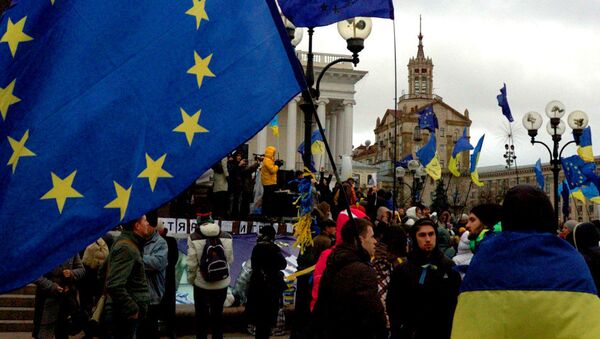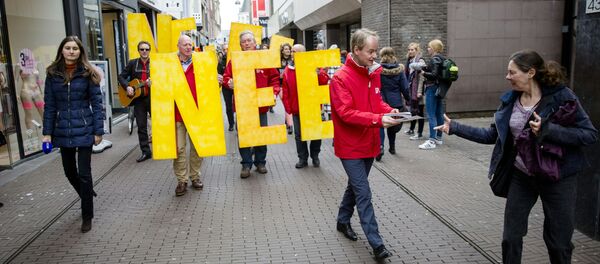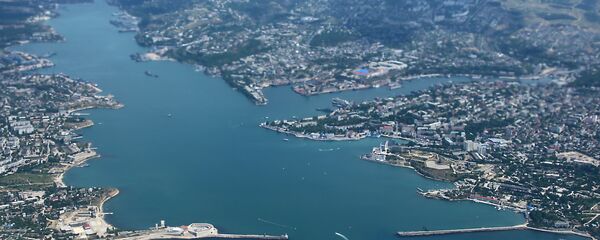On Monday, citing continued opposition resistance to the agreement, the Dutch foreign minister informed the country's parliament that the government would need more time to negotiate a legally binding deal acceptable to the Dutch people and the other 27 EU member states.
Effectively, if the ratification goes through, the deal which Kiev hoped would be the first step to Ukraine's membership in the EU might just become its main barrier.
Rutte is being forced to account for the views of Dutch voters; in an advisory referendum in April, nearly two-thirds of voters chose to reject the EU-Ukraine association by voting 'No'.
European officials' continued stalling of processes meant to integrate Ukraine into the EU has led to growing disappointment and anger, even among Ukraine's most fervent supporters of the European project.
Commenting on Amsterdam's reticence, former Ukrainian Deputy Prime Minister Volodymyr Semynozhenko told Ukrainian media that the Dutch government's actions are a "humiliating betrayal" of those Ukrainians who came to Maidan Square in Kiev in winter 2014 to overthrow the old government.
Accordingly, the politician suggested, "a question arises about whether Ukraine paid too high a price for association with the EU. This is at a minimum humiliation for our country."
Between late 2013 and early 2014, protesters came out to occupy Kiev's central square, the Maidan Nezalezhnosti, to protest then-President Viktor Yanukovych's decision to cancel EU Association and join the Russian-led Eurasian Economic Union project instead. Protests culminated in a coup d'état in February 2014, when Yanukovych was forced to flee the country. Kiev ended up signing the agreement in March 2014, but the Dutch government has held up its ratification ever since, seeking to avoid the prospect of Ukraine joining the EU.
Offering a solution, Semynozhenko suggested that perhaps now "the wisest decision we could make would be to admit that we have made a mistake, both politically and economically. [We should] leave our 'Euro-illusions' behind as counterproductive, and build our own economic policy in our own interests."
Supporters of Ukraine's European integration were dealt another blow earlier this week, after the European Parliament published the draft agenda for its upcoming summit in Strasbourg. The issue of granting Ukraine visa-free travel regime was not found anywhere on the agenda.
Experts have explained that EU officials' continued hesitation has to do with the fact that Kiev faces an ongoing civil war in the east of the country, as well as an increasingly dire economic situation. Already struggling to deal with a refugee crisis brought on by chaos in the Middle East and North Africa, and by German Chancellor Angela Merkel's open-door immigration policy, Brussels is understandably hesitant to granting over 40 million people from an impoverished and war-torn country the right to enter the EU. The question remaining is: how much more frustration will Kiev be prepared to tolerate from the EU before it decides to shift its geopolitical and economic orientation?





